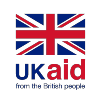Children are disproportionately vulnerable to harms and adverse living conditions such as abuse, harassment, exploitative labour, and environmental pollution. In Nepal, children in the worst forms of child labor (WFCL) are mired in multiple problems. However, their plights often go unnoticed and are therefore not addressed as their voices lack space and their views are not taken seriously. It is important that local governments prioritise their issues in their plans and involve children in the planning process for a child-friendly society.
This was the message that children in WFCL in Nepal gave to local representatives during an event held on the eve of this year’s National Children Day or Bal Diwas, in Kathmandu, on 13 September 2022 by the Child Labour: Action-Research-Innovation in South and South-Eastern Asia (CLARISSA) Programme. Members of the Children Advocacy Group (CAG), and the Action Research Group (ARG) – child rights advocacy and research groups for children/ young people in WFCL – shared their lived experiences and their concerns with local representatives from Kathmandu, Lalitpur and Bhaktapur districts and other stakeholders, including teachers, child rights activists, police officials, the media and civil society organisations. The event was organised by Children-Women in Social Service and Human Rights (CWISH) with support from the CLARISSA Programme, implemented in Nepal by Voice of Children, CWISH and Terre des hommes Nepal.
Myriad of problems affect children
One participating male, aged 18 who studies in Grade 11 in a community school in Kathmandu spoke of their workplace miseries, “There are many young people (like me) who have ended up in child labour in the city. We are overworked and have to hide from police. We worked even during the lockdowns (due to COVID 19). We don’t get the pay promised to us. We are verbally abused by the employer even when we make a small mistake.”
Explaining how young people find themselves in a downward spiral of child labour, unable to escape, he said: “I know of a girl from the countryside. She came to the city to escape from her family woes. But even here, things are no good for her. Without food and money, she used to wander around the streets. She finally found a job in a hotel. There she was made to work long hours, until late at night, without pay. She often complained of being touched inappropriately at the workplace. When she protested, the management fired her. Now she has got married to a boy (child marriage) she met online.” There is a strong likelihood that the girl will resume a similar job elsewhere. “Once you are into this hotel sector, there is strong temptation to stay on. Working in hotels is so much fun. It’s like partying every day.”
There are troubles for children beyond the adult entertainment sector, too. “There are seats set aside for women, the elderly and people with disabilities on public vehicles. But why are there no separate seats for us?” asked another teenage child. “Sometimes, small children are asked to on sit on the adult passengers’ laps and small girls, in particular, are prone to being physically abused. Has our local government thought anything on this?” Echoing her, another girl said, “I use public transport to go to school. Sometimes, I am harassed and inappropriately touched by the people on the bus. What plans do the government have for our safety while commuting by public vehicles?”
The children were also concerned about the environmental pollution in their school neighborhoods. One boy, a 9th grader in a community school in Kathmandu, said, “Our school lies at the bank of the Bagmati river. Waste is dumped on the riverbank near our school. Due to the pollution, the schoolchildren often fall sick. What is the local government’s waste management plan? Will there be government support for public schools where we study?” Another child went further to say, “The constitution talks about child-friendly governance. But we are afraid to go to police or ward offices. I feel that our needs and voices are neglected in policies affecting us. There seems to be no concrete plan to integrate and rehabilitate child labourers after their rescue. How can we go about this?”
‘Children’s wellbeing is a shared responsibility’
Responding to the children’s concerns, Ms. Sunita Dangol, Deputy Mayor of Kathmandu Metropolitan City (KMC), said, “The KMC has been working with 640 community schools within the metropolis. We have capacity building programmes, including psychosocial counseling training for school teachers in each ward to ensure that every child has access to quality education and mental wellbeing. Probably we are the first local level to introduce the ‘school social worker’ concept in the country. We are working towards making every public school a model school in our metropolis”
Ms. Dangol acknowledged that WFCL is prevalent in the adult entertainment sector and that children and young people, sometimes, have to face harassment on public transport. She expressed her commitment that the metropolis would come up with a plan to tackle WFCL issues in the adult entertainment sector and install surveillance cameras on public vehicles.
“Primarily, it is the government’s duty to address these issues. However, one thing is sure, working with children alone is not enough. Their families, schools and the community have to come together to collectively tackle children’s issues,” she opined. “I think we had a very fruitful discussion here. An interaction like this helps us better understand children’s issues and views. The KMC will definitely take feedback from children next time while formulating its plans and policies that are related to children.”
